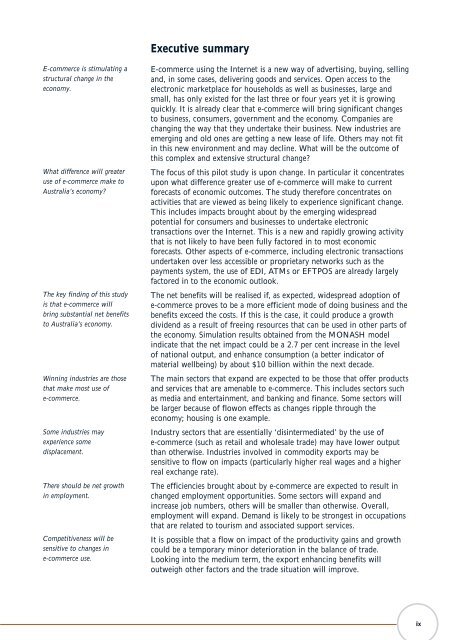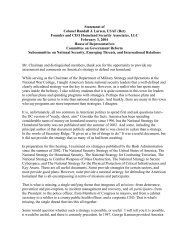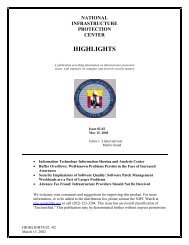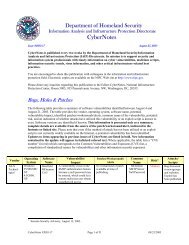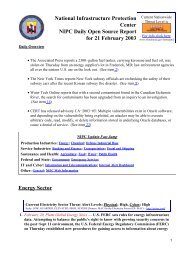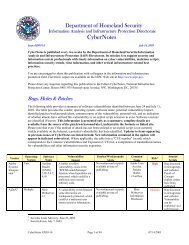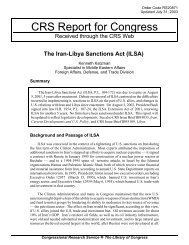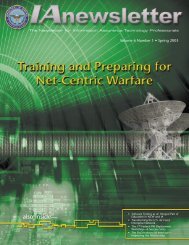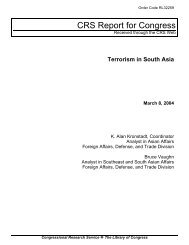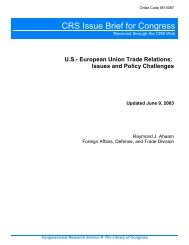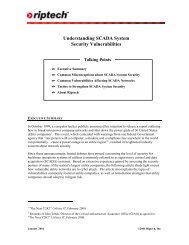beyond pt 0 23/1
beyond pt 0 23/1
beyond pt 0 23/1
Create successful ePaper yourself
Turn your PDF publications into a flip-book with our unique Google optimized e-Paper software.
Executive summary<br />
E-commerce is stimulating a<br />
structural change in the<br />
economy.<br />
What difference will greater<br />
use of e-commerce make to<br />
Australia’s economy?<br />
The key finding of this study<br />
is that e-commerce will<br />
bring substantial net benefits<br />
to Australia’s economy.<br />
Winning industries are those<br />
that make most use of<br />
e-commerce.<br />
Some industries may<br />
experience some<br />
displacement.<br />
There should be net growth<br />
in employment.<br />
Competitiveness will be<br />
sensitive to changes in<br />
e-commerce use.<br />
E-commerce using the Internet is a new way of advertising, buying, selling<br />
and, in some cases, delivering goods and services. Open access to the<br />
electronic marketplace for households as well as businesses, large and<br />
small, has only existed for the last three or four years yet it is growing<br />
quickly. It is already clear that e-commerce will bring significant changes<br />
to business, consumers, government and the economy. Companies are<br />
changing the way that they undertake their business. New industries are<br />
emerging and old ones are getting a new lease of life. Others may not fit<br />
in this new environment and may decline. What will be the outcome of<br />
this complex and extensive structural change?<br />
The focus of this pilot study is upon change. In particular it concentrates<br />
upon what difference greater use of e-commerce will make to current<br />
forecasts of economic outcomes. The study therefore concentrates on<br />
activities that are viewed as being likely to experience significant change.<br />
This includes impacts brought about by the emerging widespread<br />
potential for consumers and businesses to undertake electronic<br />
transactions over the Internet. This is a new and rapidly growing activity<br />
that is not likely to have been fully factored in to most economic<br />
forecasts. Other aspects of e-commerce, including electronic transactions<br />
undertaken over less accessible or proprietary networks such as the<br />
payments system, the use of EDI, ATMs or EFTPOS are already largely<br />
factored in to the economic outlook.<br />
The net benefits will be realised if, as expected, widespread ado<strong>pt</strong>ion of<br />
e-commerce proves to be a more efficient mode of doing business and the<br />
benefits exceed the costs. If this is the case, it could produce a growth<br />
dividend as a result of freeing resources that can be used in other parts of<br />
the economy. Simulation results obtained from the MONASH model<br />
indicate that the net impact could be a 2.7 per cent increase in the level<br />
of national output, and enhance consum<strong>pt</strong>ion (a better indicator of<br />
material wellbeing) by about $10 billion within the next decade.<br />
The main sectors that expand are expected to be those that offer products<br />
and services that are amenable to e-commerce. This includes sectors such<br />
as media and entertainment, and banking and finance. Some sectors will<br />
be larger because of flowon effects as changes ripple through the<br />
economy; housing is one example.<br />
Industry sectors that are essentially ‘disintermediated’ by the use of<br />
e-commerce (such as retail and wholesale trade) may have lower output<br />
than otherwise. Industries involved in commodity exports may be<br />
sensitive to flow on impacts (particularly higher real wages and a higher<br />
real exchange rate).<br />
The efficiencies brought about by e-commerce are expected to result in<br />
changed employment opportunities. Some sectors will expand and<br />
increase job numbers, others will be smaller than otherwise. Overall,<br />
employment will expand. Demand is likely to be strongest in occupations<br />
that are related to tourism and associated support services.<br />
It is possible that a flow on impact of the productivity gains and growth<br />
could be a temporary minor deterioration in the balance of trade.<br />
Looking into the medium term, the export enhancing benefits will<br />
outweigh other factors and the trade situation will improve.<br />
ix


